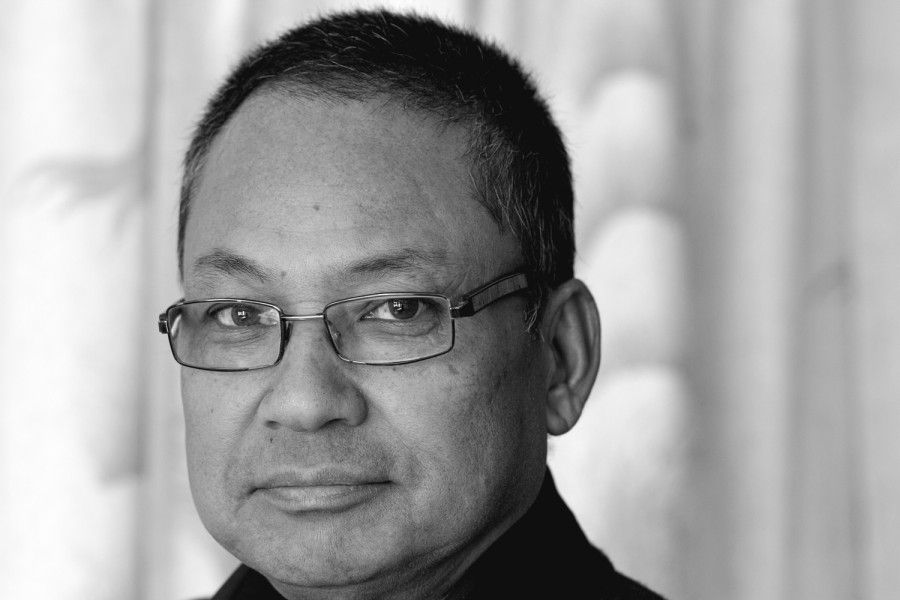Books
‘To gain knowledge and experience, it is important you read’
Kishore Pahadi on his love for reading, writing and his favourite books.
Alisha Sijapati
For as long as he can remember, Kishore Pahadi has been writing. He was writing when he was a child in school, even when he was completing his college degree in civil engineering from Pulchowk Engineering Campus. Despite the conflict of interest in two opposite fields—Pahadi continued to write and went on to publish his first short story collection Ghar Khandahar in 1980 while working simultaneously in Nepal Water Supply Corporation. Over the years, he has published numerous books and poem collections—Bishudai, Adhyaya, Lamlamti Dum to name a few. His last book Roja Kathaharu was published in 2018.
In this interview with the Post’s Alisha Sijapati, Pahadi talks about the importance of reading and writing and recommends some of the best books he has read till date. Excerpts:
How did you first come to love books?
Ever since I was a child, I was drawn towards the world of literature. I may have been in grade one when I realised my love for books—no matter whether they were textbooks or story books. I grew up reading stories from different genres. Love stories, mythology and detective stories increased my interest in reading and writing stories from an early stage.
What was the last book you read and did you like it?
I would rather speak about the current book that I am reading. I am currently reading Madhav Kafle’s Khushi ko Piro Dhuwa. I am a big fan of his work.
What are the five books you have read that you would recommend as must-reads?
I have grown up reading novels from literary stalwarts and I would recommend them more. In Nepal, I enjoy fiction work from Daulat Bikram Bista. His book Chhapiyeka Anuhar is a masterpiece. Apart from Bista I would recommend readers invest their time in reading essayist Shankar Lamichhane’s Abstract Chintan: Pyaj, which is a Madan Puraskar winning novel. BP Koirala’s shortest novel, Modiaain—which is written in the perspective of a woman who has lost her husband in Mahabharata—is also a great read. Dhanush Chandra (Dha Cha) Gautam’s Ghaam ka Paila haru and Bal Chandra Sharma’s Nepal ka Etihasik Rooprekha are some of my favourites that I would go back to reading over and over again.
What are the books currently on your wishlist?
There are a lot of books on my wishlist, but ever since I can remember I have always wanted to complete reading Mahabharata. To read Mahabharata, you need to invest a lot of time. It has so many values and interesting stories that you would want to give it your 100 percent. Mahabharata is heavy and it demands a lot of time to read and it’s only better that you understand the nuance of every word. This is something that I would want to invest a lot of time into.
Why do you think reading and writing is important?
In my more than four decades of life, I have spent a lot of my time reading and writing. To gain knowledge and experience—on any issue—it is important you read. If you read, you will expand your horizons and it’ll make you think better, write better and react better.
What book has influenced you the most and why?
I like to read historical books and the only writer and the book that has influenced me is Bal Chandra Sharma. I have read his book Nepal ka Etihasik Rooprekha, which outlines the entire history of Nepal. During those days, not many wrote interesting historical books and Sharma’s Nepal ka Etihasik Rooprekha gave me a fresh perspective about our country and its rich historical values.
I enjoyed reading that book so much that I go back to re-reading it—just to jolt up my memories. Sharma’s book will always be evergreen for me and it is an important book for the younger generation to learn about our country and what happened early on in the nation where we live now.
How do you draw inspiration for writing?
Our society’s various social perspectives and the way people live and perceive life is something that pushes me to write more and be creative. Every single person gives a writer the platform to explore their creativity. A writer always draws inspiration from true life events—this helps the writer grow as a human being and become a better writer.
Unfortunately, I have not been able to manage time. I have been writing less. There are many things that are in my heart that I would like to write but it never translates into the paper. I often question myself is this some sort of challenge that all literary writers go through?




 22.64°C Kathmandu
22.64°C Kathmandu














